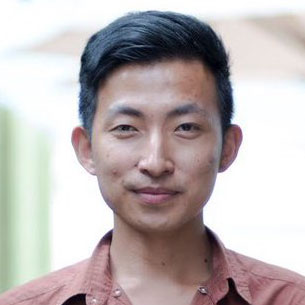Columns
Calling on an old friend
Gurkhas have served the British crown; now, the UK should help Nepal in its fight against Covid-19.
Lex Limbu
The secretary-general of Amnesty International has written an imploring letter to a British newspaper pointing out their utter failure in vaccine diplomacy. On June 24, the organisation called upon the United Kingdom government to reflect on the historic relationship with Nepal, and the contribution of hundreds of thousands of Nepali Gurkha soldiers in their battles over the years, and provide 1.4 million doses of AstraZeneca (AZ) vaccine to the country effective immediately. In Nepal, 1.4 million people over 65 are waiting for their second dose of AZ.
Support from the UK has been miserly at best in monetary terms—the latest emergency relief was just over 600,000 pounds. As the son of a Gurkha soldier who served the British crown for 28 years, I find the aid embarrassing. My grandmother, 80, who is still in Nepal, has not had a single dose of the vaccine. My aunts, whose sons and brothers have been loyal to the crown, are still vulnerable. More than 9,000 Nepalis have died unnecessarily. To tout the 200-year-old relationship as being ‘special’ is nothing but platitudes.
Emergency response
But there is a moment now that could spell redemption. On Twitter and on camera, the UK Embassy in Nepal has been working hard to put its brightest spin on what few scraps of aid the UK government has thrown in the direction of Nepal. The shiny videos, the self-congratulatory tweets, the pomp and celebration over what amount to paltry pieces of aid really stick in the craw. Make no mistake, there has been no concerted emergency response from the UK befitting either the level of the crisis or the supposed esteem in which the UK holds Nepal-UK relations.
Behind the scenes, the truth is that British medical institutions spent weeks trying to get the UK government to agree to take their donated continuous positive airway pressure therapy (CPAP) ventilators to Nepal. Out of a possible 5,000 ventilators, only 130 were shipped in the end. The much-lauded oxygen plant installed at the Nepal Police Hospital was part of a pre-planned programme, and was not going to be anywhere near enough to avert the crisis. The fanfare around the donation of 2,000 units of personal protective equipment (PPE) beggars belief, and is so embarrassingly small it would have been better left unsaid. More than a month after two UK medical experts were sent to ‘assess’ the situation in Nepal, their findings have not been released and the UK has taken no follow-up action. In that same squandered month, the virus has had time to mutate, leading to more deaths in Nepal and spreading within and beyond the country, including to the UK.
Is the UK government more concerned about the potential political fall-out from exceeding its own recent hefty international aid budget cut than actually standing up and responding to the crisis? Saving face over saving lives appears to be the order of Prime Minister Boris Johnson’s day. It is sad to see a proud nation that claims to be a global leader reduced to a mere spectator as its allies pay the ultimate price during the pandemic. Recent developments provide a glimmer of hope despite these challenges. Having refused to consider bilateral vaccine donations before, following the United States at the G7, Johnson announced vaccine donations from the UK to countries that need them.
Rebuilding the relationship
So, back to that redemption. If the UK were to send 1.4 million doses of AstraZeneca to Nepal within the next week for a vaccine roll-out as Amnesty has called for, it would be a start towards rebuilding the relationship with Nepal and restoring the UK’s reputation as a global leader. This would still need to be followed by the real work: Getting at least 40 million further doses of vaccine (of any brand) into the country soon so that the government of Nepal can reach its 72 percent vaccination target rate required to quell the virus, and with it, the death and suffering, and risk of further mutations.
Health is a human right, and the UK still has the opportunity—just—to make amends and end on the right side of this friendship and our shared history. Enough with the frippery and fanfare. The world is watching alongside our Nepali friends; we need to at least end this story well.




 8.22°C Kathmandu
8.22°C Kathmandu















